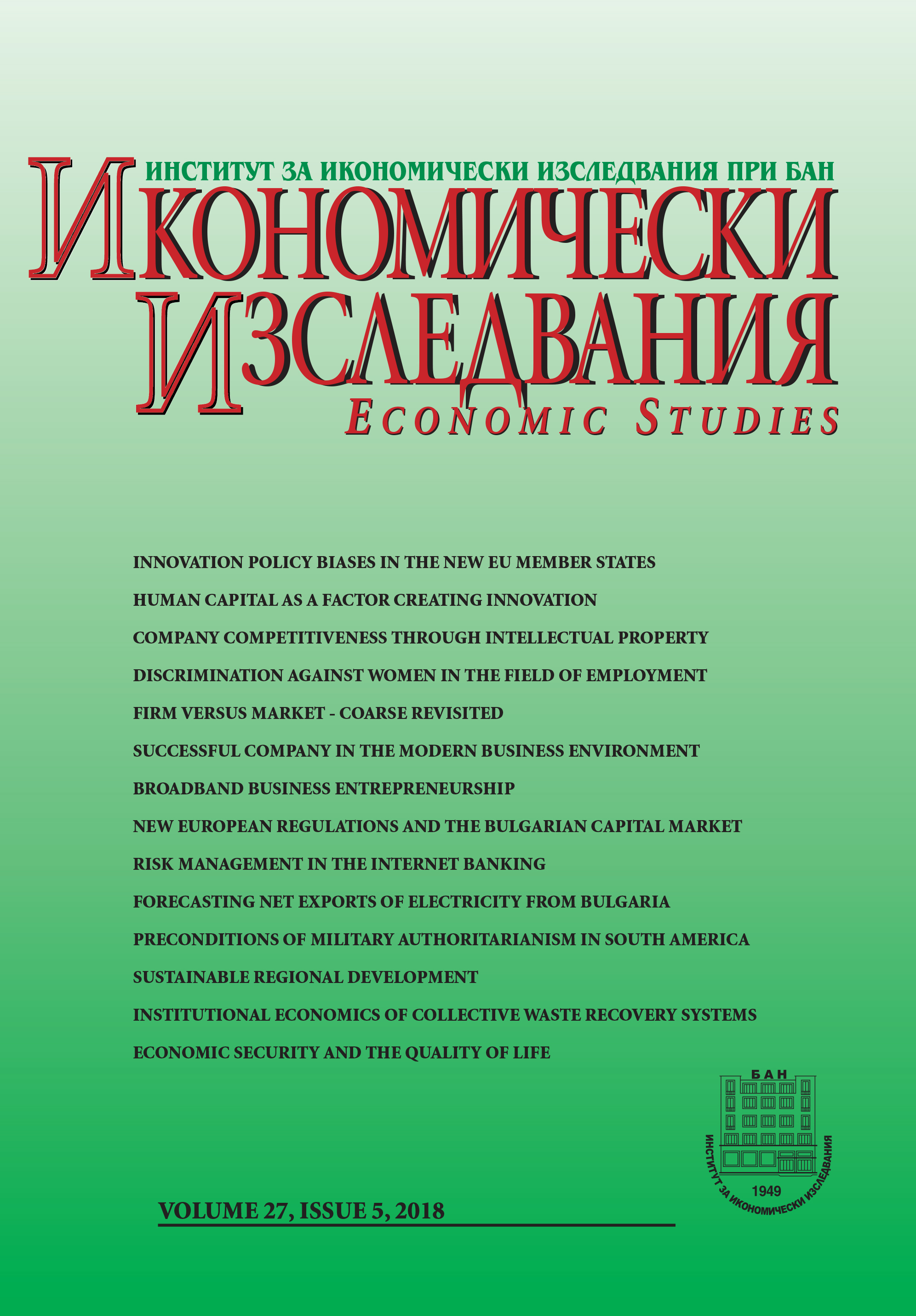Economic and Socio-Political Preconditions of Military Authoritarianism in South America
Economic and Socio-Political Preconditions of Military Authoritarianism in South America
Author(s): Mincho HristovSubject(s): Economy
Published by: Институт за икономически изследвания при Българска академия на науките
Keywords: JEL: F5
Summary/Abstract: In the sixties and seventies of the 20th century, military regimes were established in South America, carrying a long-term structural project for national development. Civil rights, legal norms, parties are suspended in order to carry out the pre-determined policy and to accomplish the tasks set by the military institution. The factors that determine this trend are multi-layered and interconnected. Among these are the economic changes that are unfavorable for the Latin American countries and especially the devaluation of their main export products after the Second World War, the need to close or restructure unprofitable state-owned enterprises and the conduct of socially unpopular steps, the lack of a nationally responsible political elite, highly developed and corrupt institutions. The external political factors can also be added to the economic factors. The Cuban Revolution of 1959 and its engagement with the Soviet bloc is one of the reasons for rethinking the US foreign policy towards the entire Latin American region. Under President Kennedy, the Strategic Doctrine "Alliance for Progress" was adopted, where serious attention was given to new challenges and ways to overcome them. The ideological basis of the military regimes is the Doctrine of National Security. Therefore, it is precisely the correlation between painful socio-economic reforms and the repressive nature of military dictatorships that is part of the present study.
Journal: Икономически изследвания
- Issue Year: 2018
- Issue No: 5
- Page Range: 154-163
- Page Count: 10
- Language: English

